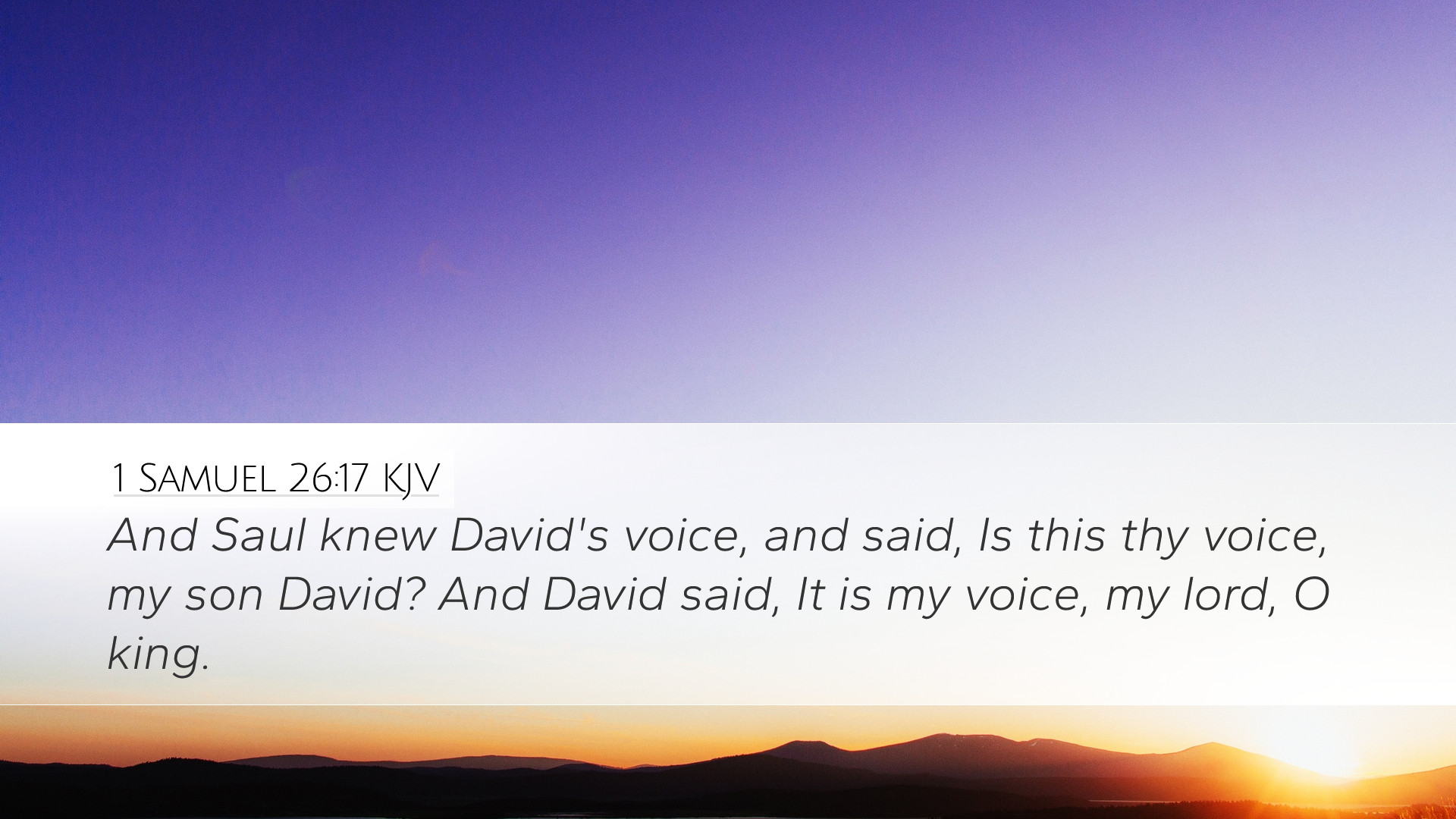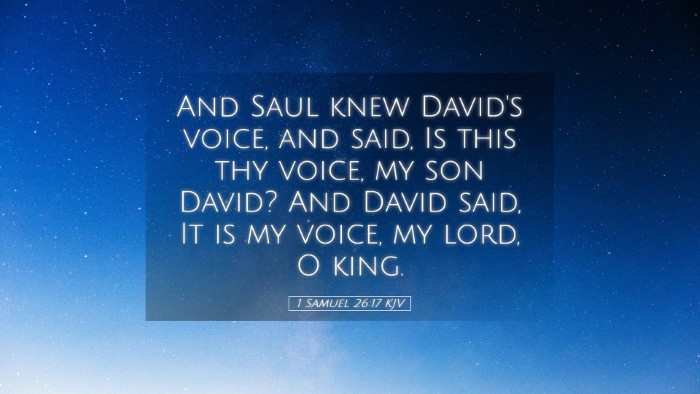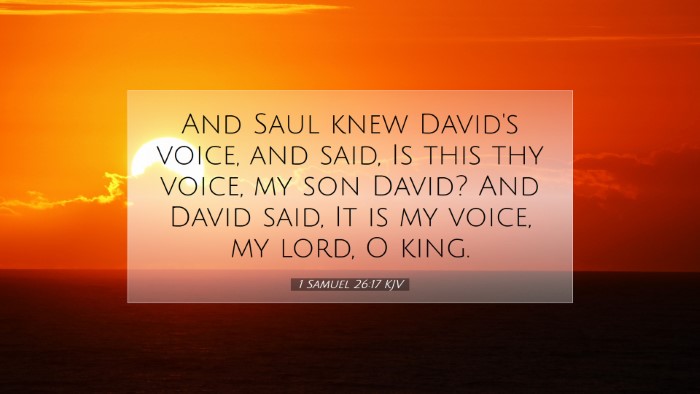Commentary on 1 Samuel 26:17
Verse Text: "And Saul knew David's voice, and said, Is this thy voice, my son David? And David said, It is my voice, my lord, O king."
Introduction
This verse occurs during a pivotal moment in the narrative of David and Saul. It represents a significant encounter between the anointed king of Israel, Saul, and the future king, David. The complex relationship between these two figures is underscored here, reflecting themes of recognition, loyalty, and the stark contrast between a king consumed by jealousy and a future ruler marked by integrity and faith.
Contextual Overview
David has spared Saul’s life on two occasions, demonstrating mercy despite Saul’s relentless pursuit. In this chapter, David and Abishai infiltrate Saul's camp, providing a critical opportunity for David to confront Saul. This interaction not only emphasizes David’s noble character but serves as a powerful commentary on divine providence and the nature of true kingship.
Insights from Public Domain Commentaries
Matthew Henry’s Commentary
Matthew Henry presents this encounter as a testament to David's faith and moral integrity. He notes that Saul’s recognition of David's voice carries significant emotional weight. Henry writes:
"Saul, being in a deep sleep, is roused by a voice he knows well. This recognition symbolizes the lingering bond between them, amidst the animosity that has grown. David does not capitalize on Saul's weakened state but rather affirms his loyalty and respect."
Henry highlights the irony in Saul’s relationship with David, suggesting that while Saul views David as a threat, David perceives Saul's position with compassion. This interaction serves to remind readers of God’s anointed role, alluding to the faithfulness of God toward His chosen leaders.
Albert Barnes’ Notes
Albert Barnes emphasizes the significance of communication in this passage. Saul’s inquiry, "Is this thy voice, my son David?" illustrates a dual recognition—first of David’s voice and second, the paternal bond that seems to persist despite Saul’s hostility:
"Saul's acknowledgment indicates not merely the sound but the emotional connection he still feels towards David. It is as though his heart yearns for reconciliation—a desire that contrasts sharply with his actions."
Barnes notes that David’s reply, "It is my voice, my lord, O king," dispels any illusions of rebellion. It serves as a display of respect for Saul’s authority, even as David recognizes that God’s hand is upon him for leadership. This moment serves as a key reflection of David's heart, aligned with God’s will.
Adam Clarke’s Commentary
In his interpretation, Adam Clarke analyzes the emotional undertones of this exchange. Clarke comments:
"The question from Saul signifies a moment of vulnerability, exposing his prior fears and insecurities regarding David. It embodies the tragic irony of a king who fails to recognize the threats from within, redirected towards a loyal servant."
Clarke further observes that David's response contributes to the narrative’s tension. By addressing Saul with respect, David not only honors the office of the king but simultaneously underlines Saul's failure to recognize the true threat posed by his own actions and mindset. This dynamic invites further exploration of leadership failures and the consequences of jealousy.
Theological Implications
The encounter between David and Saul in 1 Samuel 26:17 provides rich theological insights that merit contemplation:
- Mercy Over Retribution: David demonstrates a profound commitment to mercy, embodying a gospel-centered approach that calls believers to respond to enemies with grace rather than revenge.
- God's Sovereign Choice: This passage underscores the theme that God's purposes are not thwarted by human jealousy or conflict. Even in the face of adversity, God's anointed plan persists.
- The Burden of Leadership: The contrasting leadership styles of Saul and David reveal critical lessons about humility, integrity, and the attributes of godly leadership that are essential for those in positions of authority.
Conclusion
1 Samuel 26:17 encapsulates a profound moment in the saga of David and Saul, rich with implications for contemporary readers. Pastors, students, theologians, and Bible scholars should reflect on the principles of mercy, loyalty, and divine calling that emerge from this brief yet impactful exchange. It serves as a reminder of the complexities of human relationships, the pursuit of integrity in leadership, and the overarching narrative of God’s unwavering purpose.


